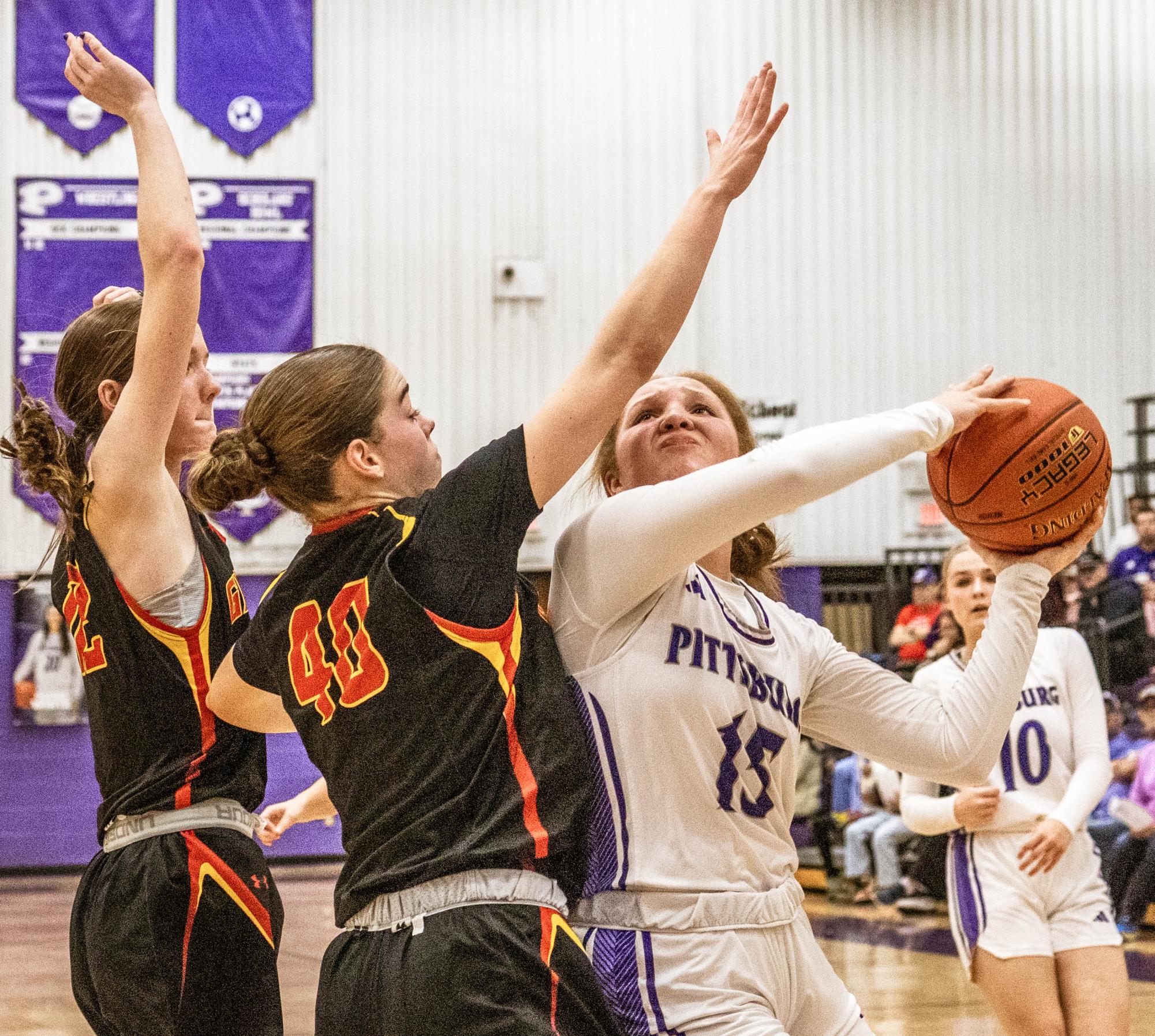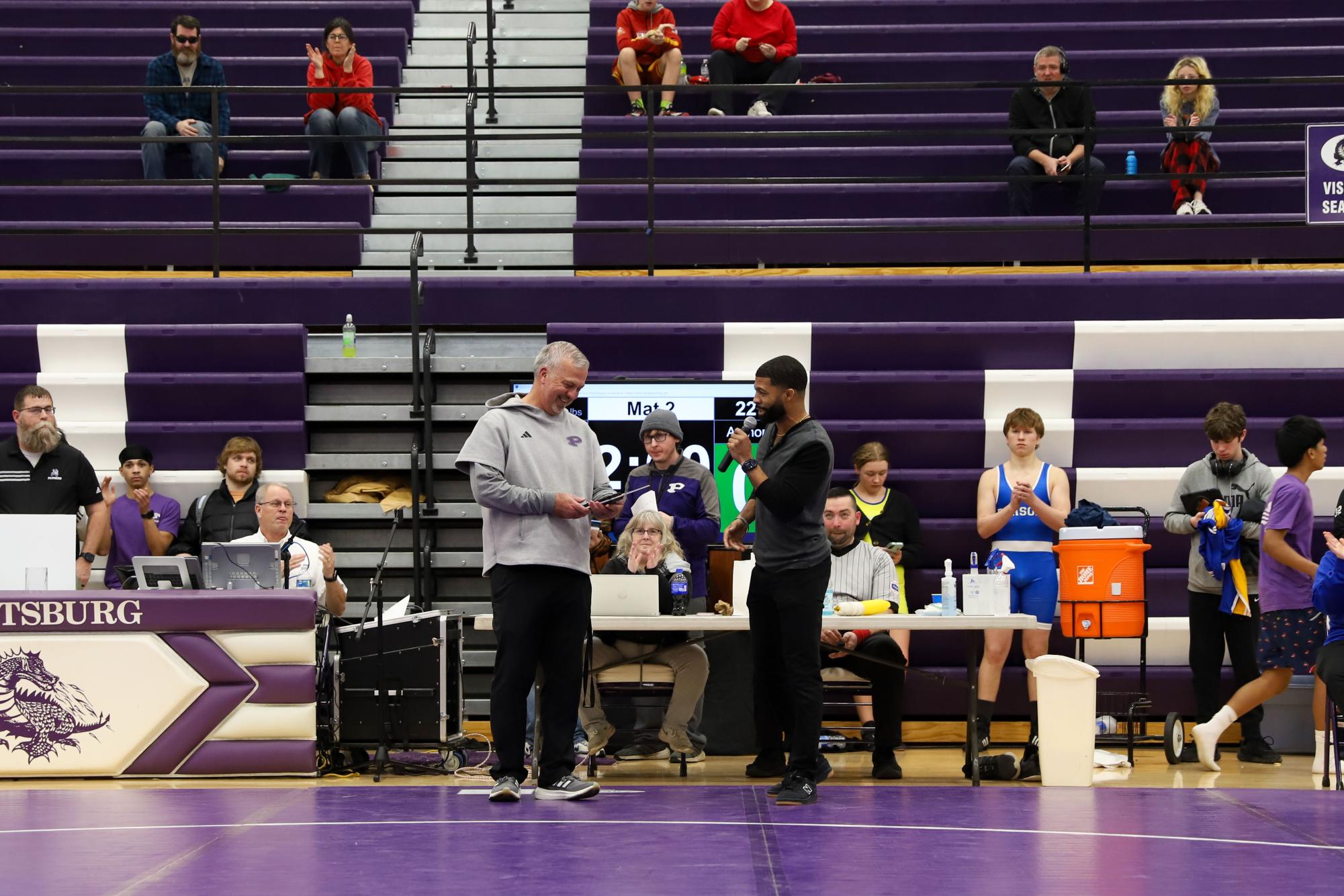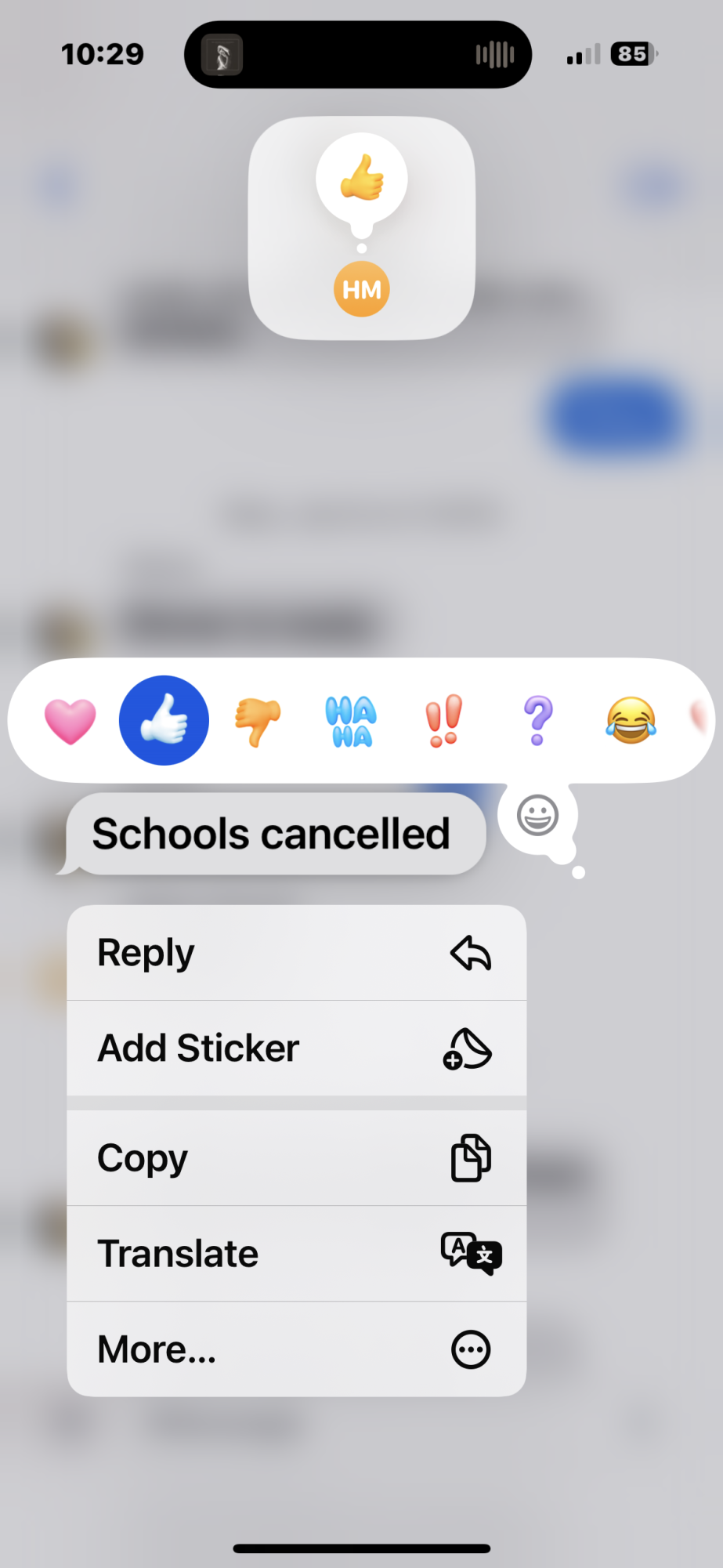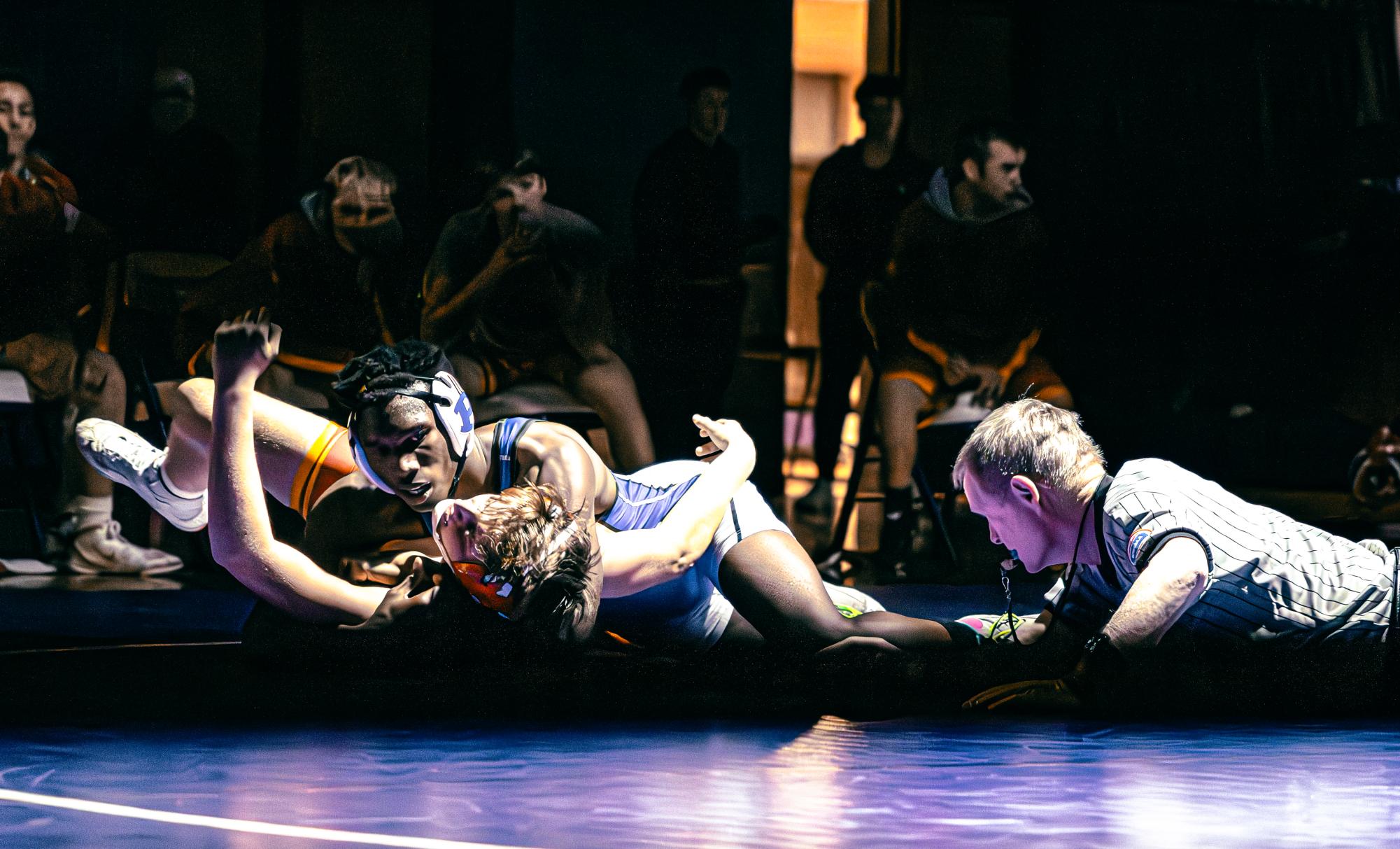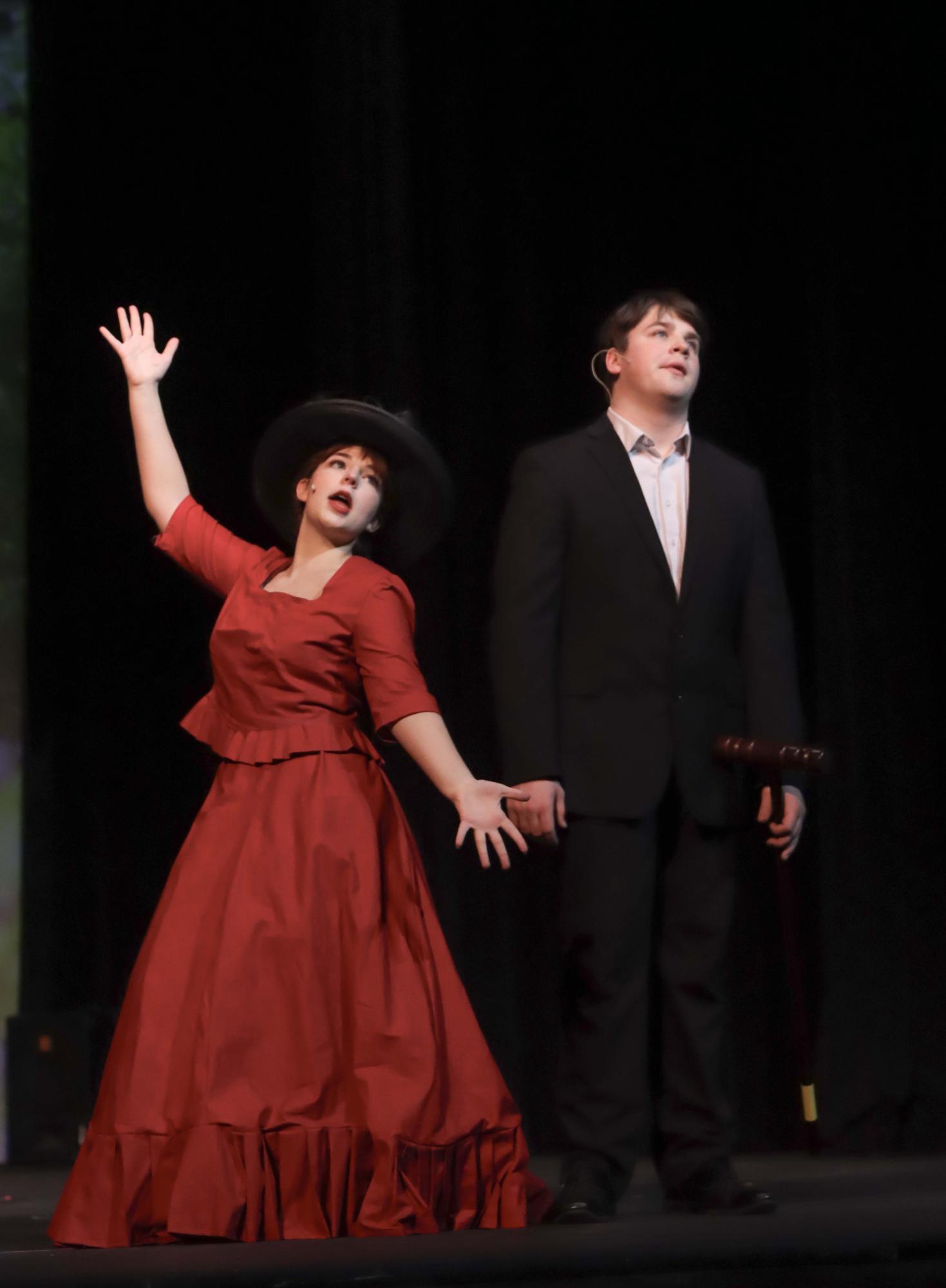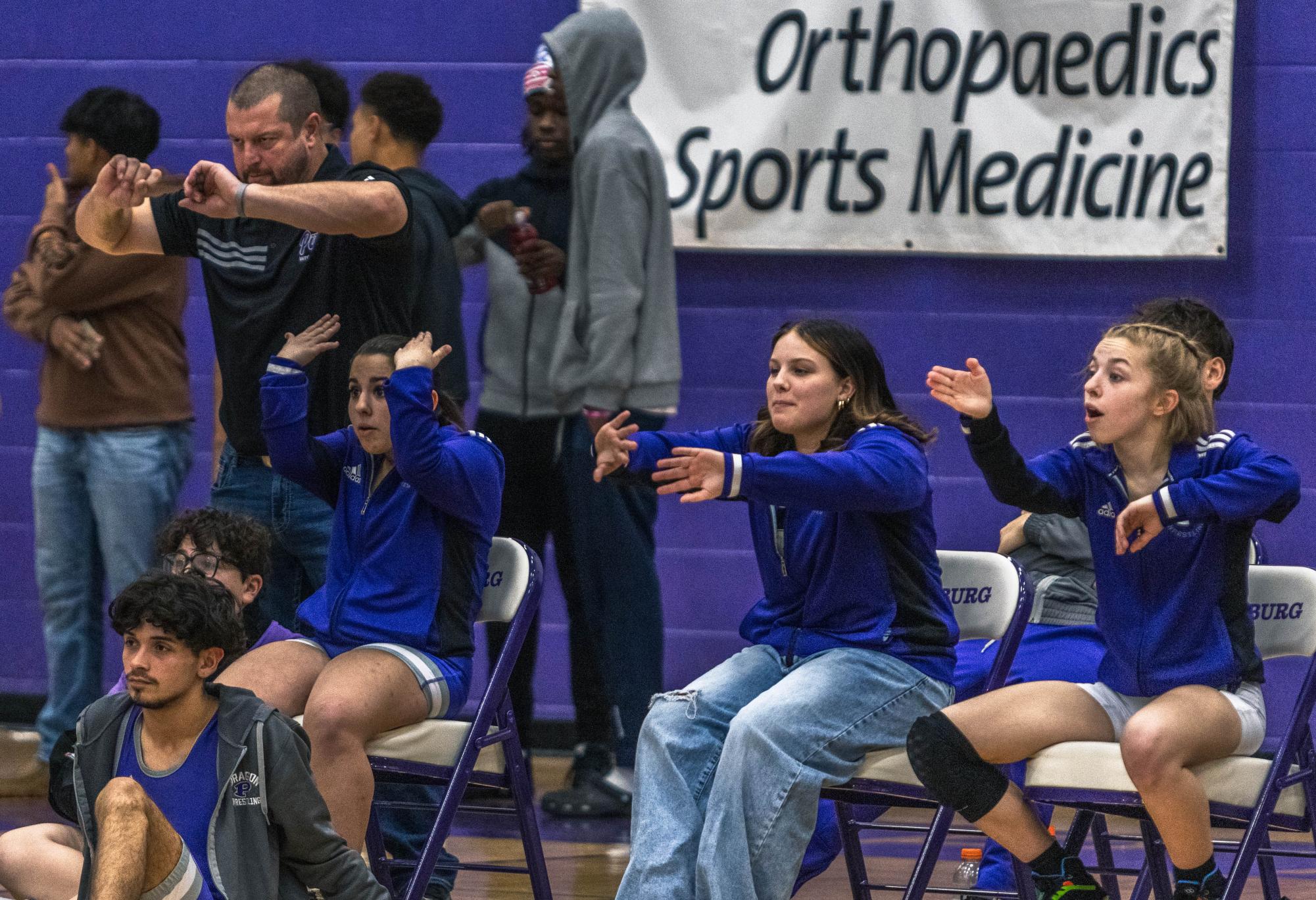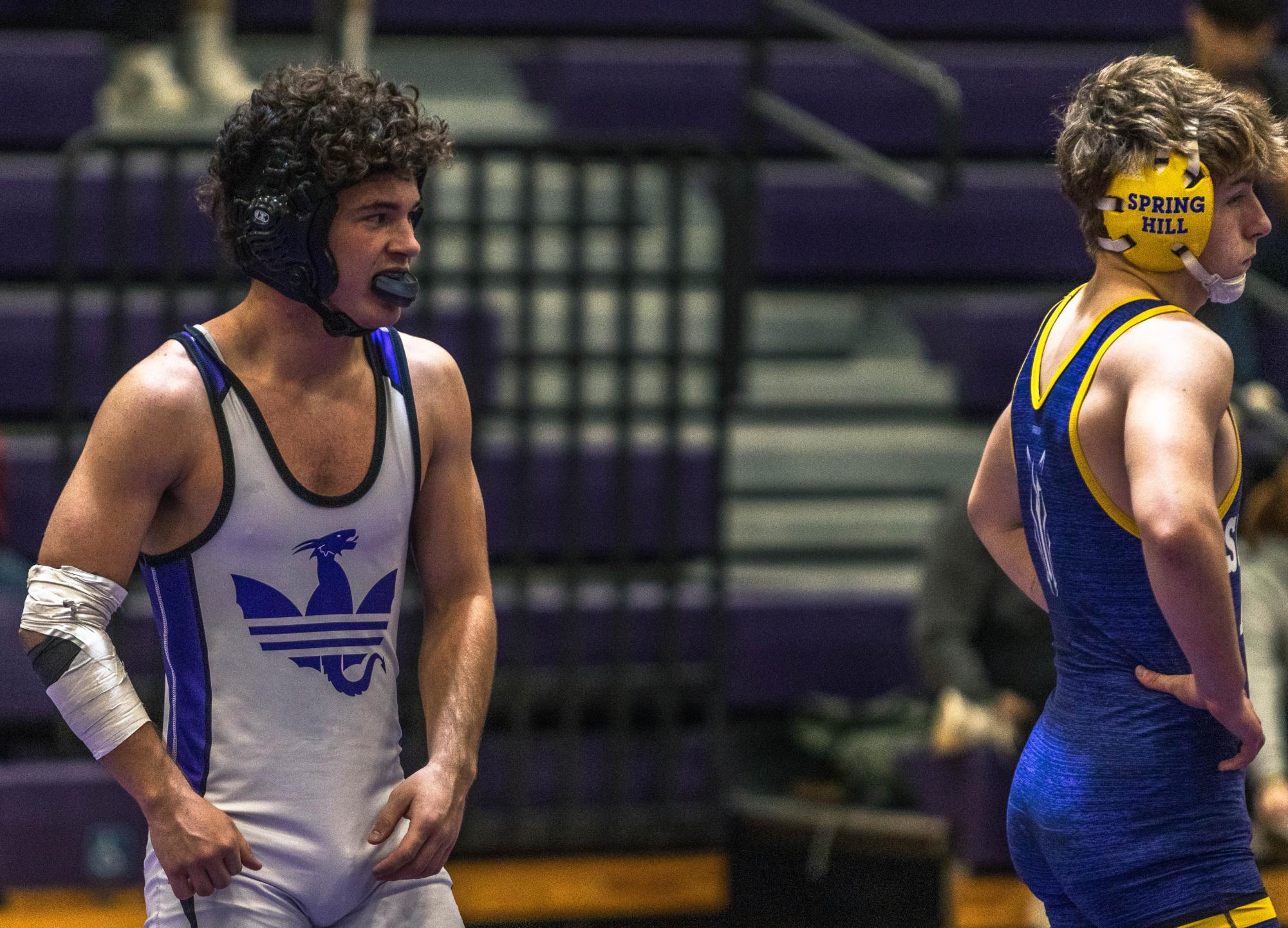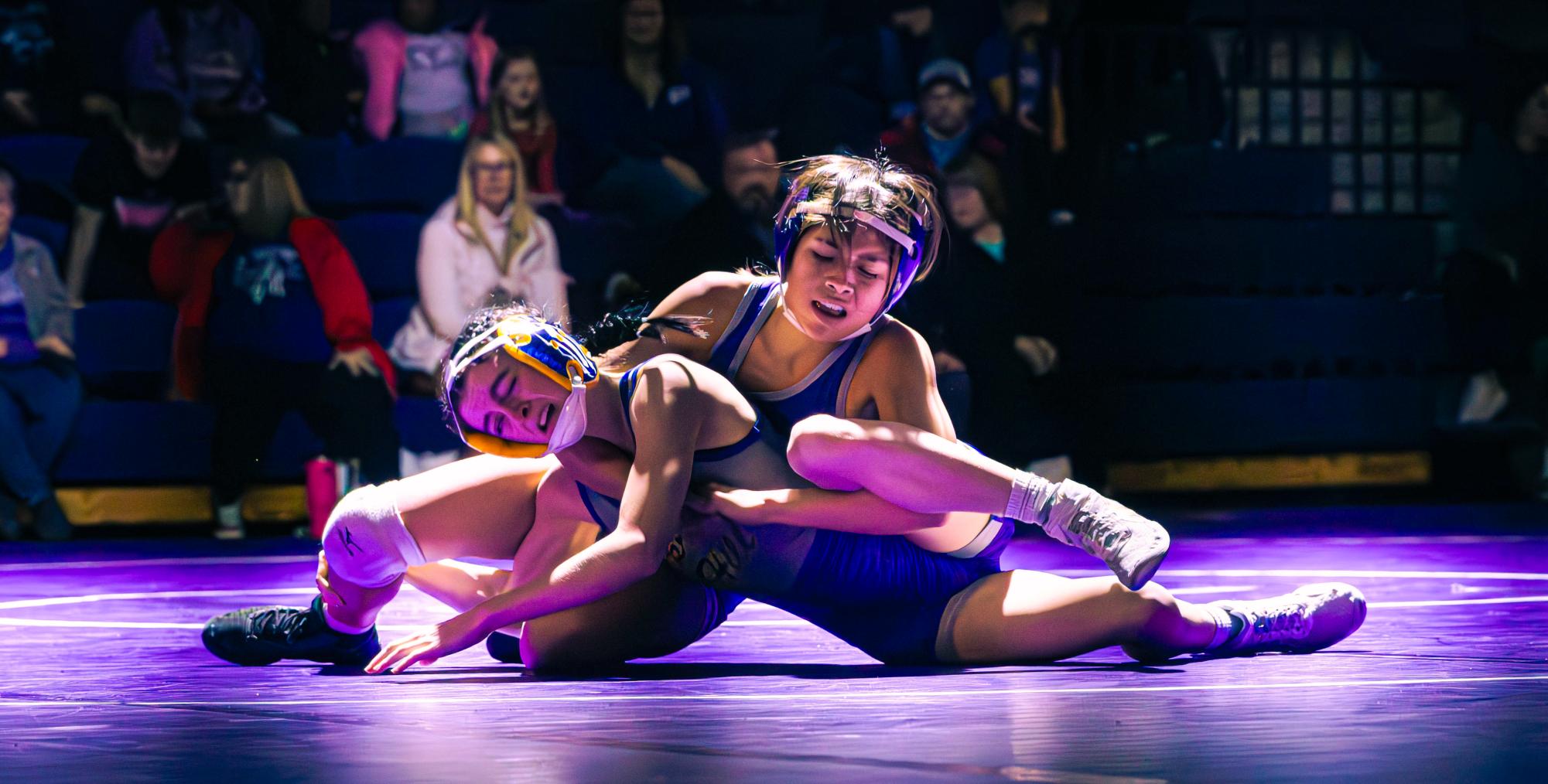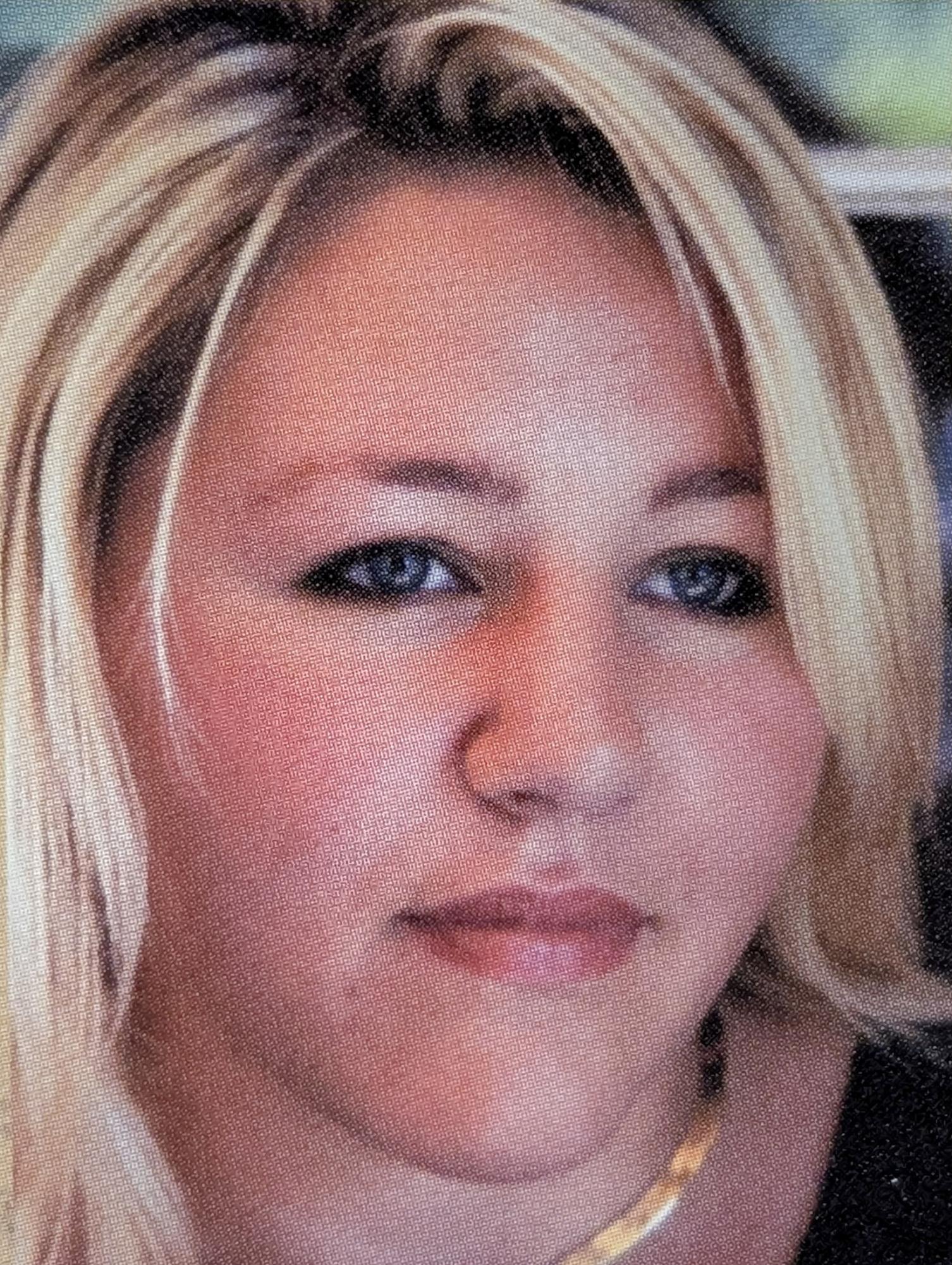An inside look into ISS
March 30, 2020
PHS uses a set of consequences to discipline students who break rules.
The student handbook lists detention, Friday Night School (FNS), In-School Suspension (ISS), Out of School Suspension (OSS) and expulsion. What a student has done will define what form of discipline they receive.
For example, if a student skips class, he or she may receive a two-hour FNS or a day in ISS. The same goes for a student who skips FNS or detention. Bullying can get a student ISS, short-term, or long-term suspension and drug usage on school grounds can also get a student short-term suspension along with a call to the student’s parents.
The school also has a point system that gives offenses a certain amount of points depending on what the offense is. When a student has a certain amount of points, the school contacts their parents. When more points are received, a student can be assigned to the Pittsburg Alternative School Setting Program (PASS).
The handbook that the faculty mainly decides what is worth which disciplinary action.
The effectiveness of ISS is being questioned by faculty.
Assistant principal Chris Garzone says, “There’s a better approach to ISS. It is supposed to be more like a learning environment.”
Garzone said whoever is teaching ISS is supposed to be trained with skills that will help the student.
“That’s not where we are right now. So it’s just a holding area,” Garzone said. “[Students] can either read or sometimes they’re just sitting there because there’s nothing to do.”
Junior Jared Spiers received ISS when he was heard using inappropriate language in the hallway.
“You pretty much just do your homework if you didn’t have any, you just had to find some way to kill time,” Spiers said. “[After I finished my work] I pretty much just ended up scribbling in a notebook for an hour.”
The handbook lists what a student does in order to receive detention, FNS, ISS or OSS.
“It depends on what has happened. If you skip Friday Night School, it’s one day of ISS. There are also cases where if a kid is kicked out of a class more than once, we can use ISS as a consequence for that class period,” Garzone said. “ISS is generally for class disruption and [when] they skip their detention.”
Garzone also said that when a student receives ISS, the student’s teachers will be notified to provide assignments.
ISS is a relatively newer form of consequence for Pittsburg and has been used for about five years.
“All we had was 30-minute Friday Night School and three-hour Friday Night School. So if a kid missed their Friday Night School, we just kicked them out of school,” Garzone said. “We felt like if we can assign ISS or put a form of discipline there before OSS, that way the kid can be here at the high school, they can still have access to their academics.”
ISS was implemented in order to use OSS less and have another option instead of FNS.
“One thing we have noticed with Friday Night School is the numbers. The number of kids that have been assigned to Friday Night School has decreased,” Garzone said. “We still have about the same amount for tardies, but for kids there aren’t a lot of occurrences where kids are kicked out of class and that we have to assign them Friday Night School,”
Receiving OSS over ISS risks the chance of not being able to participate in after school extracurriculars.
“OSS can impact your activities and your academic record. So I don’t want to do that to myself,” Spiers said. “I also think that ISS is preferable to FNS because it’s not taking your time away. It’s a part of school.”ISS was intended to offer another solution for when students are tardy. Since 2016 there have been over 1,940 ISS entries.
Some students say ISS isn’t a good form of discipline for behavioral improvement. Some students were not particularly bothered by the fact that they were assigned ISS.
“The only thing it teaches you to do is to not get caught rather than actually stop using bad language or being academically dishonest. It doesn’t prevent it. It just shoves it into a quiet room and tells you ‘hey, don’t talk,’” Spiers said. “[ISS] ultimately didn’t affect anything. I thought it was kind of funny.”
Freshman Jonathan Moncivice has received ISS a few times for missing FNS.
“It’s just a favor, because kids can catch up on work and they can have time to themselves outside of class,” Moncivice said.
ISS was installed in order to decrease the amount of OSS being assigned.
“With OSS, some people believe we’re just kicking a kid out of school, it’s going to be a reward. I don’t believe that,” Garzone said. “Even though some kids will say, yeah, you kicked out of school, be gone for X amount of days, but it’s still you’re missing classwork.”
While Garzone says OSS isn’t just kicking students out of school, some kids disagree.
“I’d rather have out-of-school suspension because it would be easier,” Moncivice said. “In ISS you just sit there and do your work or just sit there and be quiet.”



